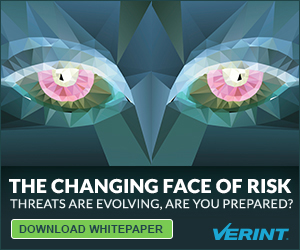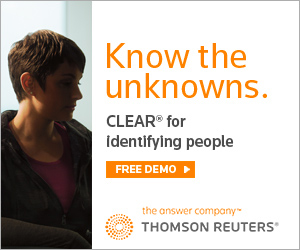|
This ABA Banking Journal newsletter is a free, twice-monthly supplement to the ABA Banking Journal magazine intended to help you stay on top of industry and policy news.
You can also stay abreast of banking news by visiting aba.com/BankingJournal, home to ABA Daily Newsbytes stories, digital exclusives, the ABA Banking Journal Podcast and more.
The cyber realm has never been more dangerous, and no one is completely immune to the dangers stemming from Russian for-profit hackers, the Chinese government, the Iranian Revolutionary Guards Corps and transnational organized-crime groups. But this risk creates a huge market opportunity, according to a new report from Bank of America. (Business Insider)
|
While payroll processor ADP released a survey earlier this week touting the addition of 205,000 jobs to the U.S. labor market last month, the official numbers released today are not quite so robust. Government data released today shows that the economy added 151,000 jobs — less than the blockbuster growth of recent months but enough to keep the recovery on solid ground, especially when combined with an unemployment rate of 4.9 percent. (Washington Post)
|
A new issue brief from The Pew Charitable Trusts finds that consumers are interested in using mobile payments for speed and convenience, but also have concerns about security of their personal information. The report is based on focus groups with smartphone owners who have bank accounts but have not tried mobile payments; those who have bank accounts and have used mobile payments; and those who do not have a bank account. (Pew Charitable Trusts)
|
Chase and Bank of America both announced last week that they will be deploying cardless ATMs at select locations across the county, as part of plans for a larger expansion of the technology. Cardless ATM initiatives seek to heighten security standards, while also optimizing customer convenience. (Pymnts.com)
|
Though cybertheft gets most of the publicity, retail-branch employees tapping into customers’ personal information is also a risk today. As concerns over identity theft and foreign cyberattacks rise, customers are largely in the dark about a growing threat just around the corner: bank tellers and managers with instant access not only to their critical personal information, but also to their cash. (New York Times)
|

During a sometimes-heated roundtable conversation this week, ABA staff and member bankers raised important concerns about the Financial Standards Accounting Board’s proposed Current Expected Credit Loss model for loan loss accounting. FASB board members said they would address several of ABA’s concerns as the final standard is issued and implementations proceeds over the next few years. (ABA Banking Journal)
|
This week, the House passed an ABA-backed bill that would make it harder for bank regulators to order banks to close certain accounts. The legislation, which passed by a vote of 265 to 159, is squarely aimed at "Operation Choke Point," a controversial government effort to force banks to stop doing business with certain types of companies. (The Hill)
|
The Consumer Financial Protection Bureau took a rare step Wednesday, asking the nation’s 25 biggest banks to make low-cost, no-overdraft accounts available to consumers voluntarily — a move to steer some of the nation’s 10 million "unbanked" households into the banking system. (Wall Street Journal)
|
The U.S. economy could suffer with inflation remaining too low if recent volatility in financial markets persists and signals a slowdown in the global economy, the Federal Reserve’s second-in-command said this week. Fed Vice Chairman Stanley Fischer, however, warned about jumping to conclusions given that some past bouts of financial market turbulence have not harmed the world’s largest economy. (Fortune)
|
Feb 14-17
Palm Desert, CA
Feb 28-Mar 1
Feb 29-Mar 1
Washington, DC
|
|








